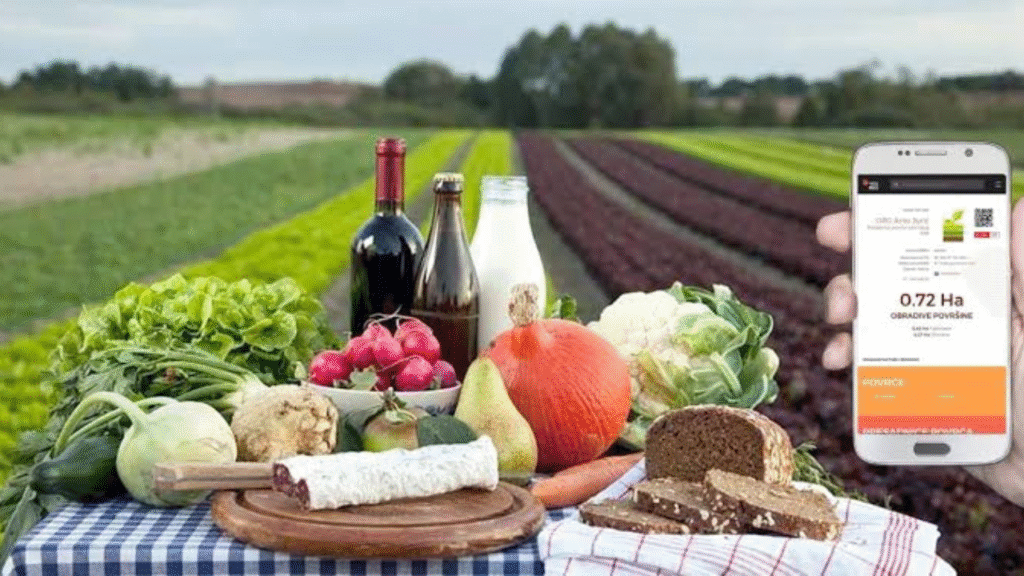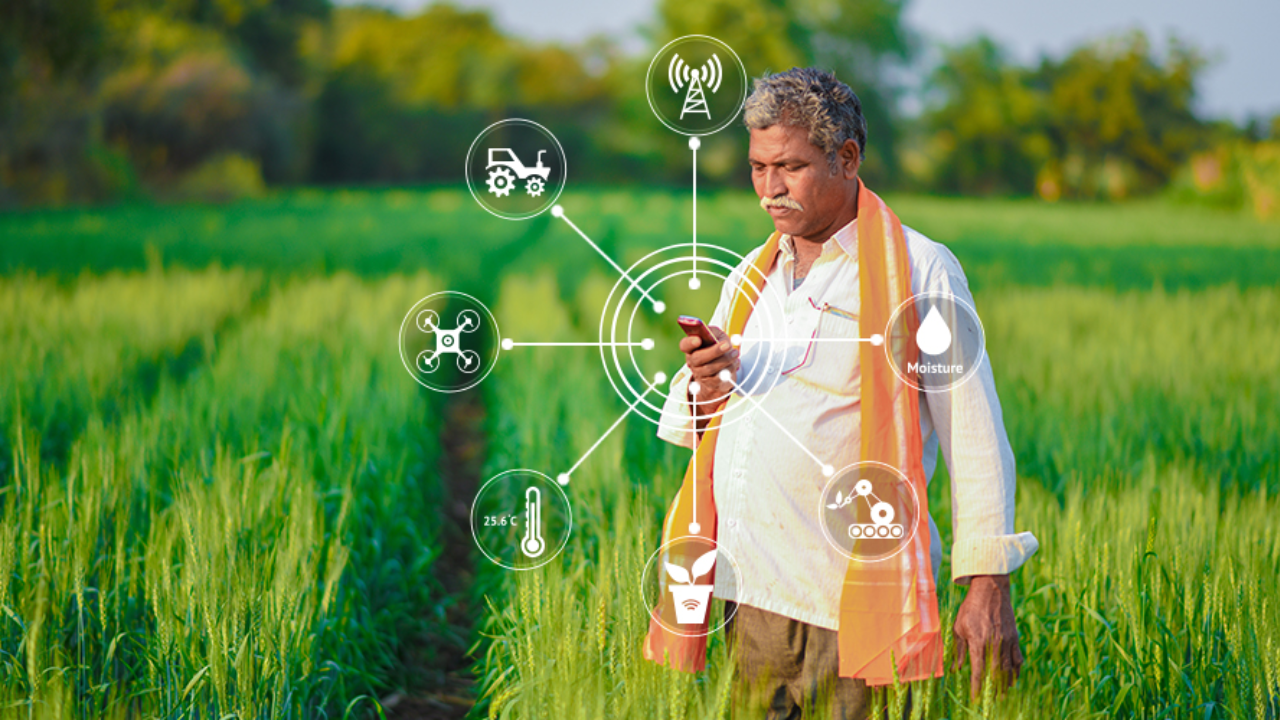For generations, farmers have relied on middlemen to sell their produce. These intermediaries often control market access and pricing, leaving small-scale farmers with minimal profits. But thanks to technology, this system is being disrupted. Digital marketplaces for farmers are now emerging as powerful tools that connect farmers directly to buyers, eliminating unnecessary steps and ensuring fairer returns.
In this blog, we’ll explore how these platforms are transforming the way farmers do business, highlight the best digital marketplaces for farmers to sell produce, and discuss the benefits, challenges, and future of agricultural e-commerce.
The Rise of Online Platforms for Farmers
As rural internet access improves and smartphone usage grows, online platforms for farmers are becoming more accessible—even in remote areas. These platforms function like any e-commerce site, but are customized for agriculture. They allow farmers to:
- Sell farm produce online
- Set their own prices
- Reach wholesalers, retailers, and consumers directly
- Access real-time market information
- Track orders and manage logistics
This shift toward digital agriculture platforms is revolutionizing traditional farm-to-market systems.

Cutting Out the Middleman in Agriculture
For years, middlemen have filled the gap between farm and market. But this role often comes at a cost. Farmers typically receive only a fraction of the final market price, while intermediaries take a significant share.
Today, bypassing middlemen in agriculture using technology is not only possible—it’s increasingly common. With the help of agri e-commerce platforms, farmers are:
- Selling directly to consumers and businesses
- Building their own customer networks
- Retaining more profit from each transaction
- Gaining better insights into pricing trends
Farmer-to-consumer platforms empower producers to have more control over their products, pricing, and market visibility.
Top Digital Marketplaces for Farmers in 2025
Here are some farmer-friendly e-commerce platforms in agriculture that are helping reshape the farm economy:
1. Kisan Network (India)
- Farmers upload crop photos and pricing directly
- Buyers and sellers connect without intermediaries
- Transparent pricing with logistics support
2. Twiga Foods (Kenya)
- Connects farmers to retailers using mobile technology
- Offers logistics, payment, and quality control
- Focuses on reducing food waste and increasing efficiency
3. TaniHub (Indonesia)
- An end-to-end supply chain app for fresh produce
- Aggregates farmer supply and connects them to supermarkets and restaurants

4. AgroStar (India)
- Provides agri-inputs and also helps farmers sell crops online
- Uses mobile-based advisory to support crop quality
5. Farmigo (U.S.)
- Focuses on direct-to-consumer agriculture
- Helps local farmers connect to households and community-supported agriculture (CSA) groups
These mobile marketplaces for farmers are changing the game, offering more autonomy and financial security.
Benefits of Digital Marketplaces for Farmers
Using digital marketplaces for farmers offers several game-changing advantages:
1. Fairer Pricing
By cutting out the middleman, farmers can set their own prices and negotiate directly with buyers.
2. Expanded Market Reach
With online agricultural marketplaces, farmers are no longer limited to local sales—they can reach urban buyers, restaurants, and wholesalers.
3. Inventory & Logistics Support
Some online platforms helping farmers reach consumers directly also offer transportation, packaging, and payment processing, simplifying business operations.
4. Data and Market Insights
Real-time dashboards provide pricing trends, buyer preferences, and seasonal demand forecasts.
5. Reduced Post-Harvest Loss
Faster sales and logistics reduce waste, especially for perishable items.
These benefits make agri digital solutions essential for sustainable growth in rural communities.
Long-Tail Use Cases: Real Stories from the Field
Let’s look at how mobile apps for selling farm produce to local buyers are making a difference:
- In Rajasthan, India, smallholder onion farmers increased profits by 30% using Kisan Network, bypassing commission agents.
- In Nigeria, farmers using Hello Tractor and a local agri-marketplace app now sell crops online without middlemen and coordinate harvest machinery rentals through mobile.
- In Latin America, family-owned coffee farms utilize agricultural apps to connect directly with international buyers and negotiate more favorable export rates.
These are just a few examples of how digital tools connecting farmers with wholesale markets are changing lives.

Challenges in Adopting Online Agri-Business Tools
While the shift to digital agriculture platforms offers great potential, several challenges remain:
1. Digital Literacy Gaps
Not all farmers are comfortable using smartphones or apps, especially older generations.
2. Connectivity Issues
Rural areas still suffer from unreliable internet, which limits access to farmer online selling apps.
3. Trust and Buyer Verification
Some farmers worry about fraud or delayed payments, especially in open-market platforms.
4. Infrastructure Gaps
Cold storage, quality control, and transport systems must evolve alongside e-commerce platforms.
Addressing these barriers is crucial to ensuring inclusive and accessible farmer marketplaces.
The Future of Direct Farm Sales
As AgriTech solutions continue to evolve, we can expect major improvements in the way farmers do business online:
1. AI & Blockchain Integration
These technologies will ensure traceability, price transparency, and smart contract-based payments.
2. Voice-Enabled Platforms
Apps that support voice commands in local languages will help more farmers adopt technology.
3. Integration with Financial Services
Online platforms for farmers will link to digital wallets, insurance, and credit scoring tools.
4. Subscription Models
Platforms may offer crop input packages, weather alerts, and buyer leads for a monthly fee.
By 2030, direct-to-consumer agriculture may be the dominant model, especially for fruits, vegetables, and dairy.

Final Thoughts: Empowering Farmers Through Technology
Digital marketplaces for farmers are not just about profit—they’re about power, transparency, and equity. By bypassing middlemen in agriculture using technology, farmers can finally take control of their businesses, build stronger relationships with buyers, and feed their communities more efficiently.
Whether you're a smallholder in a remote village or a commercial grower supplying urban stores, these platforms open up new doors. The future of farming is digital, and it’s accessible—one tap at a time.
So if you're a farmer wondering how to get started, try exploring one of the many online agricultural marketplaces in developing countries or reach out to your local agriculture department for app recommendations.
The middleman may not be gone completely—but with the right tools, farmers can lead the conversation and claim their fair share of the market.








